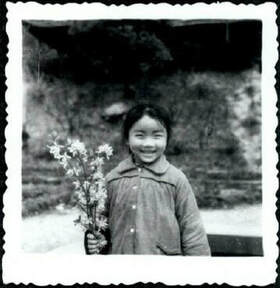Ying Chang Compestine: A Test of Character

The Children’s Book Council (CBC) is pleased to join forces with the American Association of School Librarians (AASL) to create a “Meet the Author/Illustrator” column for the AASL journal Knowledge Quest. Each column embodies common goals that AASL and CBC share – belief in the power of reading enjoyment and immersive learning and a commitment to a high level of literacy for every child. Columns are written by authors and illustrators with a wide variety of styles, genres and publishers. Readers can draw inspiration by learning about their lives and work. This column originally appeared in the September/October 2007 issue of Knowledge Quest and can be found on the AASL website.
Growing up during China’s Cultural Revolution, I constantly hungered for two things: food — because everything was rationed, and books — because they were burned.
In my debut novel, Revolution is not a Dinner Party, there is a scene where Ling, the main character, watches her father burns the family’s books. This event actually occurred in my childhood.
My father, a prestigious surgeon trained by American missionaries, destroyed all his beloved books to protect the family. Yet, he continued my education in secret, including English lessons. He instilled into me a love for books and a yearning for freedom.
For years, the only books we were allowed to read were Mao’s writings and propaganda books that worshipped the Communist regime. The few good books that escaped the flames formed the basis of an underground library. To be invited into one of these lending networks was a sign of great trust and true friendship. Any careless conduct would bring enormous risks to everyone. Punishment could include hard labor, jail, or public humiliations. The parents often received harsh punishment on behalf of their children.
Each time a good book became available, a long waiting list formed for it. When it was my turn, I never felt there was enough time to finish a book in a day or an evening. I often wished I could read it over and over. Reading allowed me to temporarily forget the constant hunger and danger. It gave me hope and fueled my dreams.
At night, electricity to our apartment was cut off to “support the Revolution,” and lamp oil was rationed. So I read many books by dim candlelight. I made sure I locked the door and kept stacks of newspapers or propaganda books nearby. That way, when an unexpected visitor came, I could quickly hide my book among them. My secret forays into these forbidden books were the happiest moments in my childhood. They gave me a window to the fascinating outside world.
My hunger for good books grew as I matured. I started to copy passages of books that I enjoyed in a small notebook. When I had no books to read, I re-read the passages over and over. Soon, other friends followed in making copies of their favorite passages. Since each of us picked our own favorite passage, when there were no books to read, we would trade our notebooks.
The books we read had often passed through many hands. They were always missing pages, often the beginning and ending. We spent hours arguing over the missing sections. That was when I decided to write my own versions and passed them along with the incomplete books to the next borrower. I often wonder if I hadn’t grown up with those books with missing pages, would I still be a writer today?
Despite this wholesale destruction of the books around me, my hunger for literature only intensified and fueled my desire to escape to a place where books and food abounded. From the stories my father told me about the United States, it sounded like heaven, and I dreamed of immigrating here.
I learned at a young age to keep my dreams close and to not let go of them. It was those dreams that kept my spirits and hopes alive, and gave me courage to endure the darkest times.
It was after Mao’s death that I found hope. The universities re-opened after being closed for 10 years. Yet the competition to attend was severe. In 1980, the year I attended the university exam, only one out of 100 students taking the exams could enter the universities.
I prepared for the entrance exam for two years. It became my purpose in life. I studied twelve hours a day, watched no movies and took no holidays. In the previous decade, school degenerated into endless political study sessions. We hadn’t had any decent textbooks for years, so finding good study guides was a challenge.
When one of my friends located an English grammar book published before the Cultural Revolution, I was thrilled. After begging her for three days, she decided to break the book into three parts and share it with me and another friend. I never got to read the entire text before the exam. To this day, I am still occasionally awakened by a bad dream where l fail the entrance exam because I didn’t get to study the middle section of the book.
Fortunately, I did pass the brutal university exam. It was the happiest time in years for my family. We received endless visitors to congratulate us. Among twenty students in the hospital compound who took the exam, I was the only one who passed it.
For the first time, I did something against my father’s wishes. I chose to major in English literature instead of medicine. I craved good literature and did not want to trade that for anatomy and biology.
After I graduated, I worked for China’s Bureau of Seismology as an interpreter. Life finally became easy and comfortable. I had the best job a young woman could hope for. The pay was good, and I got to travel all over China and host banquets for foreign geologists at fancy restaurants and resorts. Yet my dream of going to the US was still strong.
In I986, I took another important exam for applying to US graduate schools. Just getting to the test site was a challenge. I had to take a night train to another city. It was around Chinese New Year, and the train was stuffed with people. The areas in front of the doors were crowded with travelers. No matter how hard I pushed, I could not get near to a door. When the conductor blew the whistle, in desperation I ran to one of the windows and threw my bag in. Two men inside dragged me through the window. The train was packed tight, and I stood up all night. I got to the test site the next morning, just in time.
At last my dream to come to America was realized.
The first time I went into a library in the US I was overjoyed. I had never seen so many books that had beginnings and endings and no missing pages. I read and read, and I was ecstatic when the librarian told me I could borrow the books for three weeks! I had never had the leisure to read a good book for that long before. And the food! There was so much. When I ordered ice cream, I couldn’t finish half of a serving. I thought I really was in heaven.
After I married and became a mother, I began a career that let me join my two passions — food and literature. As an author, practically everything I write has something to do with food: cookbooks, children’s books, and magazine articles. Even in Revolution is not a Dinner Party, food plays an important role as a metaphor for the changes occurring in Ling’s life.
I feel blessed that I get to visit many schools and share my books and life with hundreds of students. But sometimes it saddens me to see the poor state of many school libraries. One I recently visited had the library in a trailer, and the principle also had to serve as the librarian.
The obstacles that are before us every day of our lives often seem insurmountable. I hope that my book Revolution can inspire others to overcome their personal obstacles. I intend to do whatever I can to increase awareness of the importance of books and reading. If it were not for books, my dream would have never come true.





